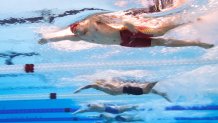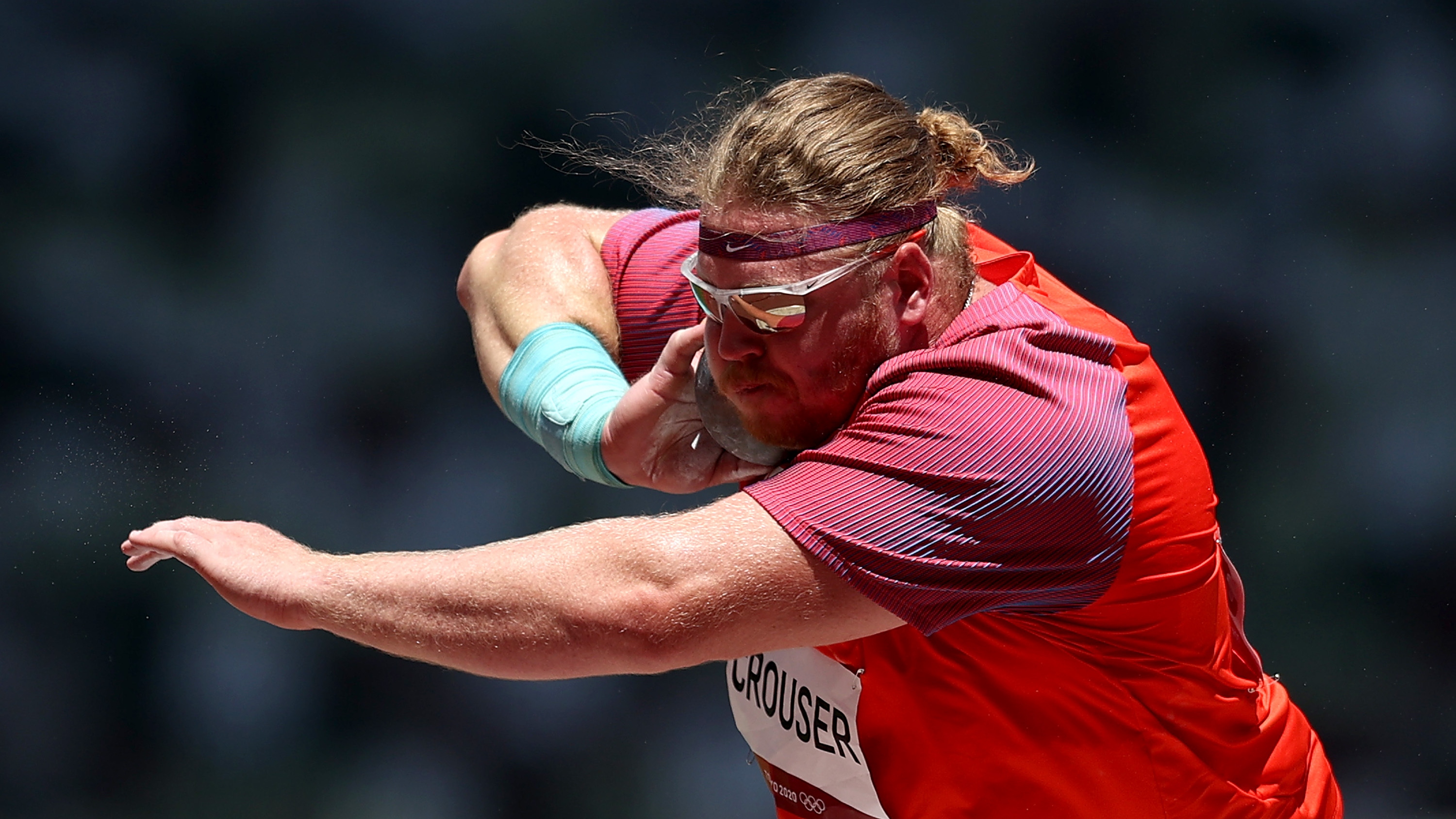It was one of those events made for the Olympics: China’s Pan Zhanle dominated the men’s 100-meter freestyle, smashing his own world record to finish more than a full second ahead of the silver and bronze medal winners.
"It was a magical moment," Pan, 19, told reporters afterward. For some Chinese fans, Pan’s victory was extra sweet in light of the frequent drug testing the country’s swimmers have faced amid outrage over suspected doping cases in the past that critics say China and global authorities covered up.

Supporters of China’s Olympic swimmers say that disruptions caused by the tests — international swimming officials say they have taken far more than other competitors — may be hurting their performance in Paris.
Get Tri-state area news delivered to your inbox.> Sign up for NBC New York's News Headlines newsletter.
The team has been under a cloud of suspicion since The New York Times reported in April that 23 swimmers tested positive for a banned heart drug before the 2021 Tokyo Games. All were cleared by the China Anti-Doping Agency, which blamed contaminated food.
Though global anti-doping authorities accepted China’s conclusions, which were not made public at the time, the revelations and the fact that 11 of the 23 swimmers are competing in France (Pan is not one of them) have cast a shadow over the Paris Games.
The issue has also prompted a diplomatic spat between the U.S. on one side and China, the International Olympic Committee (IOC) and the World Anti-Doping Agency (WADA) on the other. WADA, which has criticized what it says is the politicization of Chinese swimming, said Tuesday that it had been “unfairly caught in the middle of geopolitical tensions between superpowers.”
The controversy has opened old wounds: Some countries are still angry about the state-sponsored doping program Russia was revealed to be running when it hosted the 2014 Sochi Games. The U.S. and others argue that Russia’s ban from the last three Olympics wasn’t a strong enough response, and that global anti-doping authorities might be going too easy on China as well.
China says authorities are doing anything but. A foreign ministry spokesperson told NBC News on Wednesday that the number of drug tests being performed on Chinese swimmers "far exceeds that of athletes from other countries."
"Chinese swimmers are clean and have never feared testing," the spokesperson said. "However, frequent doping tests can indeed impact the normal training and competition of athletes."
The international governing body for swimming, World Aquatics, says China’s 31 swimmers in Paris have been tested an average of 21 times by various anti-doping organizations since the start of the year, compared with six times for American swimmers. Asked why Chinese athletes are being tested more than those from other nations, World Aquatics referred NBC News to the International Testing Agency, which did not respond to a request for comment.
While more detailed statistics on testing before and during the Olympics are not available, it would not be surprising if Chinese athletes were being tested more frequently, said Catherine Ordway, an associate professor of sport at the University of Canberra and an anti-doping expert.
"If there’s doubt about whether or not the Chinese athletes are 'clean' and you want to restore trust in the system, one way that you do that is that you ramp up the testing," she said.

The impact of testing aside, Chinese swimmers are also worried the situation could affect their once-friendly exchanges with foreign competitors. Pan said after his race on Wednesday that American and Australian swimmers had been icy toward him.
Others have cried foul over Pan’s win, China’s first gold medal for swimming in Paris after a series of disappointments in other races. One Australian swim commentator said Pan’s performance was "not humanly possible."
But sport professor Ordway said no one had challenged Australian swimmers in Paris when they broke Olympic records, and that no country should subject foreign athletes to a level of scrutiny "that we would find completely repugnant and unacceptable for ourselves."
She explained that, while there were still questions around China’s 2021 positive tests, WADA’s finding of no solid evidence of a violation meant the results were not publicized to safeguard athletes’ privacy.
Last month, the FBI and the Justice Department opened a criminal investigation into how the Chinese swimmers avoided sanctions, under a 2020 law that gives the U.S. jurisdiction over doping matters anywhere in the world and has been criticized by global anti-doping officials.
"It’s highly incorrect that one country try to impose jurisdiction on the antidoping decisions to the rest of the world," WADA President Witold Banka said last week.
U.S. lawmakers have, in turn, accused the IOC and WADA of blackmail after Salt Lake City was awarded the 2034 Winter Olympics last week on the condition that Utah officials lobby for an end to the federal inquiry.
A newly introduced bipartisan bill would give the White House permanent authority to reduce or revoke WADA’s American funding — the U.S. is the agency’s biggest contributor — unless it implements major reforms.
"We will not be silenced for trying to promote fair play," Sen. Marsha Blackburn, R-Tenn., said Tuesday.
Scrutiny of Chinese athletes intensified this week after the Times reported a separate case from 2022 in which two Chinese swimmers, including one named to this year’s Olympic team, tested positive for the anabolic steroid metandienone. As in 2021, the results were attributed to contaminated food and not made public.
The Team USA Athletes’ Commission said it was "extremely angered and discouraged" by the latest Times report, adding that U.S. athletes deserved to compete "with the knowledge that the competition is fair and in accordance with the rules."
WADA said it had reviewed the 2022 cases "with all due skepticism" early this year and found no basis to challenge Chinese authorities' conclusion, and that it was investigating the wider issue of meat contamination in China and other countries.

"Based on the number of cases, clearly there is an issue of contamination in several countries around the world," the agency said, noting that many cases had been closed without sanction as no-fault violations.
"Apart from China, in particular, there have been several of these cases in the United States in the past few months alone, where highly intricate contamination scenarios were accepted," the agency said.
The U.S. Olympic committee did not respond to a request for comment. Though WADA did not mention any specific cases, it is considering an appeal in the case of American sprinter Erriyon Knighton, who tested positive for a banned substance in March but was cleared to compete in Paris by U.S. anti-doping authorities who blamed contaminated meat.
Ordway explained that many parts of the world use steroids in rearing lean beef and pork, and that tests could pick up minuscule amounts in athletes unaware of consuming them.
For their part, Chinese state media have complained bitterly about the treatment of Chinese athletes at the Games, accusing the U.S. of using "relentless and unethical testing" to undermine Chinese swimmers.
The issue is also the subject of heated discussion on Chinese social media, where hashtags such as #IsChineseSwimTeamBeingTreatedUnfairly have been trending on Weibo.
"No matter how much World Aquatics tried to mess with the Chinese athletes’ mindset before, they still broke the world record!" one commenter wrote after Pan’s win.
Pan downplayed the impact of the testing on his gold-medal performance.
"All the tests have not affected me much and I’m not annoyed by it," he said. "It’s a part of the rules."
Janis Mackey Frayer, Dawn Liu and Rae Wang contributed.
This article first appeared on NBCNews.com. Read more from NBC News here:




